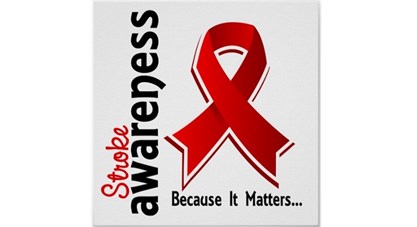Hi, Fellow Community Members!
As we round out the end of Stroke Awareness Month, I wanted to create one last blog this month on that topic. In a prior blog this month, we discussed the impacts of a stroke differing from individual to individual: http://www.homehelpershomecare.com/bradenton/blog/2016/05/may-is-stroke-awareness-month
That being said, there is not a single method of care that will apply to all individuals in the process of stroke recovery. On top of that, the role of a being a caregiver carries with it tremendous responsibility. Therefore, having a team of individuals involved in the care of a stroke survivor can make a world of a difference in their recovery. This blog post is directed towards those that may become the primary caregiver of a stroke survivor. Make sure you allow for others to help out as it will not only positively affect your loved one, but will also positively affect your ability to take care of yourself as well.

This blog will paraphrase some great information found on the National Stroke Association’s website regarding “Setting Up Your Care Team”:
https://www.stroke.org/sites/default/files/resources/careliving-guide-chapter-2-setting-up-your-care-team.pdf
May is Stroke Awareness Month - Create a Caring Partnership
The health care team is that group of people that collectively provide the care for the stroke survivor. The team is typically assembled by the stroke survivor, caregiver(s) and/or family. The care team will consist of paid health care professionals as well as others such as friends, neighbors, family members and your employer. If you are like me, you are probably wondering what your employer has to do with this situation. As the article mentions, it is important to inform your employer regarding the situation and your caregiving responsibilities as many companies have plans in place for family emergencies. In addition, you may also be eligible for the Family Medical Leave Act (FMLA).
You can break the health care team down further into three sub-teams: the medical care team, rehab care team, and personal care team. The involvement of each of these sub-teams is essential to allow you (the caregiver and member of the personal care team) the time to focus on the recovery of the stroke survivor and his/her daily activities. Last but certainly not least, it allows you the ability to take proper care of yourself, which is extremely important. The sub-teams do have some overlap and are not entirely separate. More specifically, for example, a medical professional may be a part of both the medical care team and the rehab care team.
The medical care team includes paid medical professionals: a neurologist, the primary care provider, home health care and other specialists such as a cardiologist, nutritionist and psychiatrist. They are certainly involved in complex tests and medical procedures. I also look at this team as a collection of experts that the stroke survivor and caregiver should feel free to openly and proactively ask questions about the diagnosis, symptoms, and any changes in the condition of the stroke survivor.
The rehab care team is “involved in facilitating the post-stroke recovery therapy”. The case manager or social worker will assist with discharge planning, coordination of rehabilitation services, and identify local resources that may be useful to the stroke survivor. The case manager or social worker coordinates services of the Occupational Therapist, Physical Therapist, Speech Therapist, Vocational Therapist, and/or Physiatrist for whatever is needed during the recovery process.
The personal care team is just as critical as the other teams. They address the immediate concerns such as housekeeping, meal preparation, managing child care, grocery shopping, laundry, lawn care, and pet care. This team also helps the stroke survivor to adjust to the new daily routine and will ensure a proper and custom fit care plan is in place. The article recommends that this team become educated about strokes, the stroke recovery process, and the stroke survivor’s needs and goals. Remember that every stroke survivor is different, whether you're discussing the impact of the stroke or their personalities in general.
Yours truly,
Jonathan Marsh
Thanks for reading our blog. At Home Helpers, we look to not only make life easier but to also make a difference in our clients’ lives. It is truly an honor to have an opportunity to work with members of our community and we take the trust bestowed to us very seriously.
Contact Home Helpers for your Stroke Recovery Care Needs
For information about how Home Helpers can serve you and your family, call (941) 499-5946, email JMarsh@HomeHelpersHomeCare.com or visit Stroke Recovery Care Bradenton FL - Home Helpers. Our senior home care services including homemaker care, companion care, personal care, Alzheimer's and dementia care, respite care, 24 hour care & live-in care, and monitoring and medical alert services.
Save
Save
Save
Save
Save
Save
Save
Save
